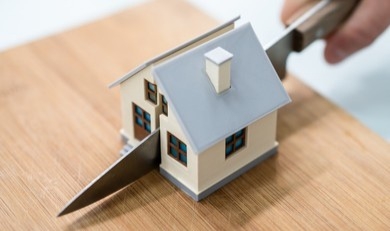Lake Properties Lake Properties
Lake Properties Lake PropertiesHere’s a more detailed explanation of why you pay levies when buying into a complex and exactly what they cover, broken down clearly:
Why Do You Have to Pay Levies in a Complex?
When you buy into a strata-titled property (like an apartment, townhouse, or unit in a gated estate), you’re buying two things:
- Your individual unit (what’s inside your walls)
- A share of the common property, which could include:
- Hallways
- Lifts
- Gardens
- Pools
- Driveways
- Roof
- External walls
- Shared facilities (gyms, lounges, security gates, etc.)
Since all owners use and benefit from these areas, everyone contributes to maintaining them. That contribution comes in the form of levies, collected by the body corporate (or owners' corporation) that manages the complex.
What Do the Levies Cover?
Levies are typically divided into three main types of funds:
1. Administrative Fund (Day-to-Day Running Costs)
These levies cover regular, ongoing expenses to keep the property functional, safe, and presentable:
- Cleaning of shared spaces (e.g., hallways, lobby)
- Landscaping and garden maintenance
- Pest control in shared areas
- Utilities for common property (e.g., electricity for lights in corridors or water for shared gardens)
- General repairs (e.g., fixing broken lights or doors in shared areas)
- Insurance for the building and public liability
- Fees for strata or body corporate management
- Security services (guards, CCTV, entry systems)
2. Sinking Fund (Long-Term Maintenance and Capital Works)
This fund builds up over time to cover major works or future repairs, such as:
- Repainting the building
- Roof repairs or replacement
- Major plumbing or electrical upgrades
- Replacing lift systems
- External window repairs
- Re-surfacing driveways or car parks
The idea is to plan ahead so the complex doesn’t fall into disrepair and so that owners aren’t hit with huge bills all at once.
3. Special Levies (Unexpected or One-Off Costs)
Sometimes, the existing funds aren’t enough, and a special levy is raised. These are usually for:
- Emergency repairs (e.g., storm damage)
- Legal fees (e.g., if the complex is involved in a dispute or needs to chase unpaid levies)
- Upgrades or additions not previously budgeted for (e.g., installing solar panels, upgrading security systems)
Example of Levy Use in a Real Complex
Let’s say you buy an apartment in a 20-unit building:
- Your quarterly levies might be R1,200, broken down like this:
- 700 for the administrative fund
- 400 for the sinking fund
- 100 goes toward a special levy for upcoming roof repairs
You’re helping cover:
- Monthly cleaning of the lobby and hallways
- Insurance for the whole building
- Maintaining the shared pool and gardens
- Saving for a repaint scheduled in 3 years
- Emergency repairs to the roof that weren’t budgeted in the sinking fund
Why It Matters
Paying levies keeps the ting, structural integrity)
- Livable (clean, functioning utilities)
- Attractive (well-maintained gardens, exteriors)
- Valuable (a well-managed building boosts resale value)
Plus, it's often legally required — you can't opt out, and failure to pay levies can lead to penalties, debt collection, or legal action.




















